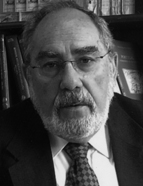

Without forgetting the micro-scales and a certain determinism of geographical factors, Romero Magalhães was fundamentally concerned with the socio-economic transformation of spaces and people (Leonor Freire Costa, “Joaquim Romero Magalhães’s Thoughts about Early Modern Portugal”..., 2019, pp. 66-72). He focused on the topography of power without forgetting Marx’s premise that “an economy is always historically specific” (E. Hobsbawm, On History..., 1998, p. 124). Whether in the context of municipalities or other political-administrative districts, his explanatory descriptions of the social organisation of a given space-time focused above all on the way in which men produced and distributed the product of their labour. However, the theoretical and methodological influences of Romero Magalhães’ historiography never proved contradictory to his very personal style of thinking and writing, which gave an important role to narrative ingenuity and analytical intuition.
Many of his works were intended to encourage his students and open up new horizons. He was a professor who did research – an excellent and affectionate teacher, as his students recognised. He never wanted to see himself as a researcher who did not teach, or who considered teaching superfluous to writing history. The thousands of printed pages he left us – books, chapters of collective works, essays, texts for exhibition catalogues and more than a hundred articles – are testimony to his fine prose and reflect his historical erudition. Some of his published works on topics as relevant to modern history as municipalities, the Inquisition and taxation in the Brazilian empire are collected in the five volumes he called Miunças, published by the University of Coimbra Press, the last of which was posthumous.
Romero Magalhães was a remarkable historian of short sentences. He knew the rules of the art well, but challenged them intuitively, searching the sources for an explanatory logic capable of giving meaning to human action and for metaphors that anchored the text to the time and places in which the characters and institutions acted. He was a cultured historian who feared excessive specialisation, methodological confinement and the empire of theory. Perhaps for this reason, he never stopped devoting time to music, literature and, above all, his passionate reading of detective novels. In addition to the evidence of historiographical talent that stands out in his work, Romero Magalhães was an academic who believed in persistent reformism, the use of reason and democratic deliberation. He had an emotional, uninhibited personality and a variable mood, but was always committed to the public cause and had an integrated and cultured view of academic life. Between 1985 and 1989, he was President of the Governing Council of the School of Economics and Commercial Sciences (FEUC), a position he held again between 1991 and 1993. He was also President of the Scientific Council of the same school between 1989 and 1991.
This work is financed by national funds through FCT - Foundation for Science and Technology, I.P, in the scope of the projects UIDB/04311/2020 and UIDP/04311/2020.
